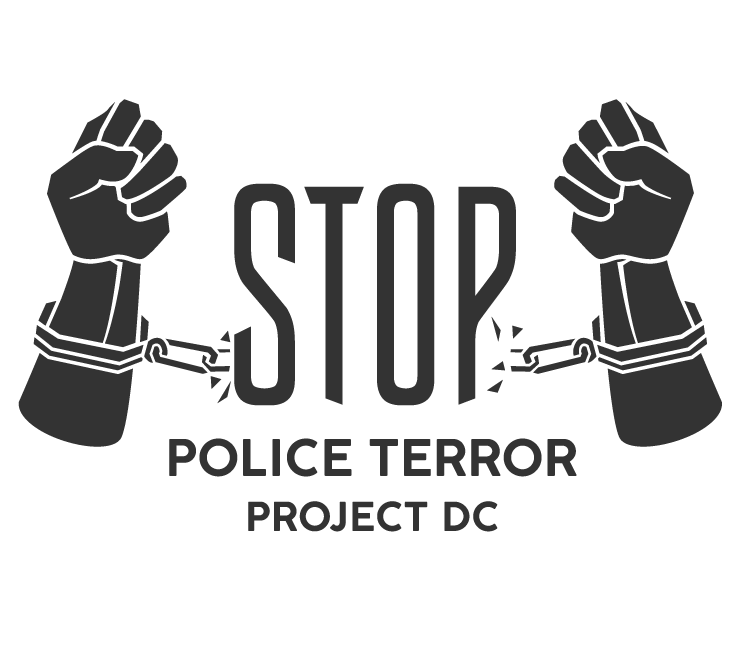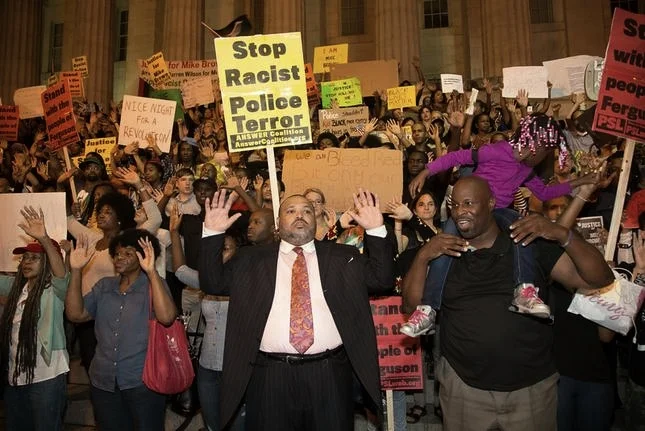Stop Police Terror Project-DC is an organization in the Washington D.C. area committed to changing the system of racist, militarized policing in the nation’s capital. We work to not only oppose police abuses, but to advocate for alternatives to policing and help build community-led peacekeeping efforts designed to place the power over public safety squarely in the hands of Black and oppressed communities.
The Stop Police Terror Project-DC is a product of the broad upsurge against racism and violence in policing now known to some as the “Black Lives Matter Movement” and to others as the “Movement for Black Lives.” We are the successor organization to the DCFerguson Movement, a grassroots project created two weeks after Michael Brown was murdered in Ferguson, Missouri.
DCFerguson led dozens of marches over the six months following that tragic incident mobilizing thousands of people and highlighting that the issues contained in Ferguson also existed in Washington, D.C.
DCFerguson was instrumental in exposing the Metropolitan Police Department’s souped up version of Stop-and-Frisk known as “jump-outs” and additionally highlighted a number of instances of police murders in Washington for which no justice had ever taken place.
The Stop Police Terror Project-DC formed from a recognition that the depth and breadth of the work went beyond simply the initial moment, but the need to institutionalize our efforts to root out the systemic racism and brutality in the Metropolitan Police Department and to educate and advocate for non-police approaches to keep our communities safe.
Our work has been central to passing legislation to this effect, but also elevating the serious issues of bias, brutality and misconduct that need to be addressed in our local criminal-legal system.
Stop Police Terror Project DC-stands on these basic principles:
We believe in the self-determination of Black communities.
We seek to challenge and replace oppressive policing systems that exacerbate inequalities through punishment, violence, coercion, and control.
We do not believe the police can be reformed. As long as the police are an institution, there must be clear accountability mechanisms in the hands of the people.
The issue of militarized policing and mass incarceration are military solutions to the social problems in oppressed communities, which is a form of social control. As such critiquing capitalism is a necessary part of our movement.
We are opposed to patriarchy and all racism, bigotry, homophobia and transphobia.
Our movement is broad and unity is important. We strive to uplift, collaborate with, and stand as an accomplice to all marginalized and oppressed communities

